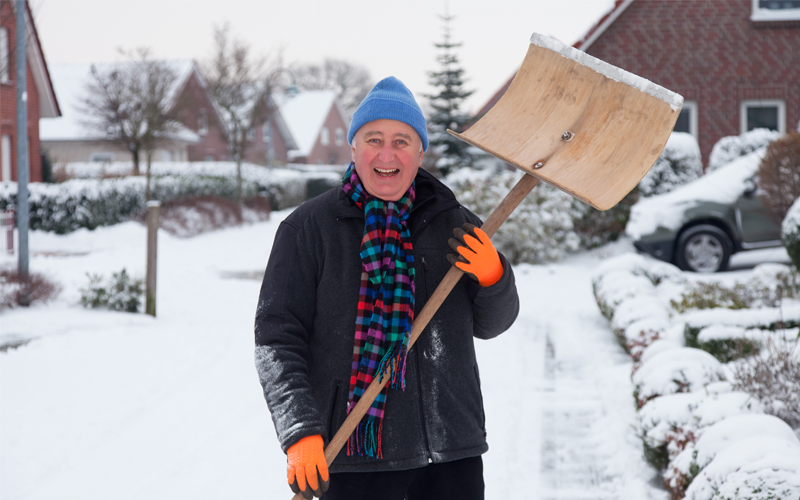As this week’s storm begins to move out, at some point, you’ll grab your shovel and start digging out. But are there times when it makes more sense to find a neighbor or friend – or to hire someone – to do the work for you?
Make no mistake, shoveling is hard work. Each year, people visit hospital emergency rooms with complaints of chest pain and other heart concerns after shoveling snow. It’s estimated that about 100 people in the U.S. die each year while shoveling.
Save your heart by asking these seven questions before you pick up that shovel:
- How fit am I? Shoveling raises your heart rate and blood pressure. So, people who perform vigorous exercise on a regular basis will be in better shape to remove snow. Heart attacks while shoveling may be more likely to occur in people who are sedentary most of the time.
- How much snow is on the ground? The deeper the snow, the heavier it will be. And the heavier the snow, the more physical energy it will take to remove it.
- How heavy is it? A wet, hard-packed 5-inch snowfall will be heavier to remove than a dry 8-inch snowfall. It will be even harder to clear if it includes a layer of ice.
- Do I have the right shovel? In heavier snows, a smaller shovel – or putting less snow on the shovel – can help you ease the load.
- Do I have the right clothes? While the physical exertion of snow shoveling contributes to heart problems, so too does the temperature. Cold weather may cause blood vessels to constrict. If you shovel, cover your mouth and nose with a scarf so you breathe in warmer air.
- Do I have a plan? Prepare to take frequent breaks while shoveling – don’t try to do it all in one outing.
- How is my overall health? People with a history of heart disease, or with risk factors such as diabetes, high blood pressure, smoking, high cholesterol, overweight or people ages 55 and older, may be at greater risk for a heart attack.
If you experience any of the symptoms of heart problems while shoveling, including chest, neck, jaw or back pain, shortness of breath, nausea and vomiting, call 9-1-1 immediately.

